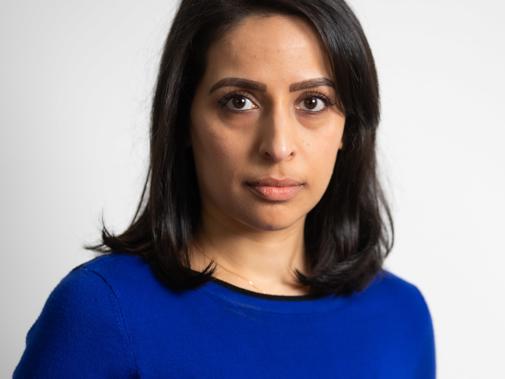The strength of the NHS lies in its diversity. The different experiences, approaches and insights that people bring to medicine are what creates and drives a workforce that reflects, respects and understands our patients’ needs.
Events like LGBTQ+ History month offer us the opportunity to celebrate the contributions and achievements of LGBTQ+ people within our profession, to acknowledge the struggles and challenges faced in the past and present, and to renew our commitment to challenging discrimination and promoting inclusion now and in the future, both within the BMA and across the NHS and society.
Some people may look at progress that has been made on LGBTQ+ rights and wonder why this is still a topic we need to talk about and what more needs to be done. As I reflected on this, one of the quotes from our 2016 research into the experiences of lesbian, gay and bisexual doctors in the NHS stood out to me: ‘No-one said anything, everything went quiet and then everyone continued with what they were doing.’
This doctor was describing how colleagues reacted to an incident of outright homophobic discrimination in the workplace. But this also serves to remind us in the broader sense that promoting inclusion cannot be a one-time action. Not one day or month a year, but something that needs to be continually repeated and practised. We can’t just say nothing, go quiet, and continue with what we were doing before.
Dealing with the pandemic has stretched us all to the limit. It has tested our resilience, and often our unity. Now more than ever it is important that your BMA demonstrates that we value all of our members, not in spite of our differences but because of our differences. Whatever your sexual orientation, your gender identity, your race, religion, disability, class – no matter how you identify, we see you, and we are here for you. We support you. You matter.
We have seen, through the motions debated and passed by your representative body on issues including trans and non-binary rights and banning so-called conversion therapy, that we need to continue to work towards a truly inclusive NHS.
We need to work to create environments where people who experience and witness homophobic, biphobic and/or transphobic discrimination feel safe to call it out and have confidence that things will change if they do.
We need to promote better understanding and awareness of issues faced by people of all genders and sexual orientations in education, training and the workplace. We need to commit to listening to, learning from, and acting on, the experiences of our LGBTQ+ colleagues and patients in tackling these issues.
As a new parent, seeing discrimination of any kind weighs heavily on me when I think about the world my child will grow up in and the values I want her to know and experience.
Appreciating and valuing diversity, and challenging discrimination, are the building blocks for a better future. As the BMA continues its work to promote inclusion, we need to ensure that our values of kindness and respect for others are maintained.
Later this month we will be conducting a survey about LGBTQ+ experiences in medical education, training and workplaces, to better our understanding of the key issues that we should be addressing as a trade union and professional body.
It will be open to medical students and doctors of all sexual orientations and gender identities, and we will listen to, and learn from, this work to improve our support. We will also challenge others; in our NHS, employers, leaders and healthcare stakeholders to improve theirs. If this isn’t already a priority for you, it needs to be.
Please do look out for this, and share it with others to help inform our future work. And if you are experiencing discrimination yourself, or see it happening to others, please know that you are not alone. You can contact the BMA for advice, or for wellbeing support; we will listen, and we will act.
Dr Latifa Patel is interim chair of the BMA representative body
@DrLatifaPatel

